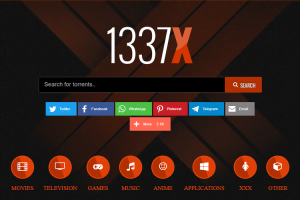Know Your Business (KYB) is the due diligence review of the business and industry against Money Laundering techniques. It allows you to develop policies and assess suspicious activities or transactions. Corporate businesses cab determine whether the business they are dealing with is legit or just a shell company that is present on papers through KYB checks.
In the UK, these regulations are defined by Electronic Identity Verification (eIDV) and 4th AML Directive by the European Union. These directives dictate the KYB regulations to corporate entities. In the US, Customer Due Diligence (CDD) measures are being imposed to determine the true ownership of a business.
From KYC to Know Your Business KYB
The Bank Secrecy Act (BSA), introduced in 1970, is the United States’ most important anti-money laundering regulation. Banks and other financial institutions must meet the compliance obligations it involves. BSA gave birth to KYC and AML solutions to make sure that businesses verify the identities of their customers and have valid money laundering checks. From verifying customers, the need to verify businesses emerged.
The fifth AMLD has centralized the data of beneficiary owner data. This centralization brought ease to the table for KYC and KYB. Businesses must know the other business they are dealing with. It is very crucial in this era as if any business in the blacklist and you are dealing with them, it can call trouble for your business as well. So KYB is vital to know the business one is dealing with.
Similar to Know Your Customer (KYC), KYB service providers verify businesses by obtaining official commercial register data using APIs. By employing the registration number and jurisdiction code of a business, an efficient digital KYB service can collect confirmable information for the business.
Steps of KYB Process
Know Your Business include the following factors:
-
Anti Money Laundering AML checks
This measure is to ensure that the business one is dealing with is all clear and not involve in any kind of AML activity. This check is to know if any business is found to notorious for acts like money laundering.
-
Document Verification
All the documents of any business have to be authenticated to ensure that it’s not a shell company and is a legitimate company to deal with. Proper document verification has to done as stipulate by the regulations.
-
ID Verification of Owner
The identity of owners and stakeholders of a business have to verify to make sure that they do not involve in any fraudulent activities. The true identity of a person owning a business validates.
From Manual KYB to Automation
As in past KYC done manually a cumbersome procedure. Same as that the whole process of KYB uses to done manually. Businesses were verified through phone calls or by manually checking the documents which required a lot of time and team effort. This could also increase the chances of committing errors. With AMLD 5 the beneficiary’s owner’s data centralize adding ease to the whole process.
Digital KYB
Now, this process has digitized. Digital KYB a seamless process and has mitigates the risk of errors. It has cut labor costs and time which need in the manual KYC process. Electronic ID verification (eIDV) is using now to perform KYB along with KYC and AML verification. Businesses face stricter regulations for identification. And verification of customers before onboarding them. To prevent financial crimes, the 4th AML Directive puts emphasis on rigorous audit trails. For this purpose, digital verification services have proven to be significantly effective in regulations.


